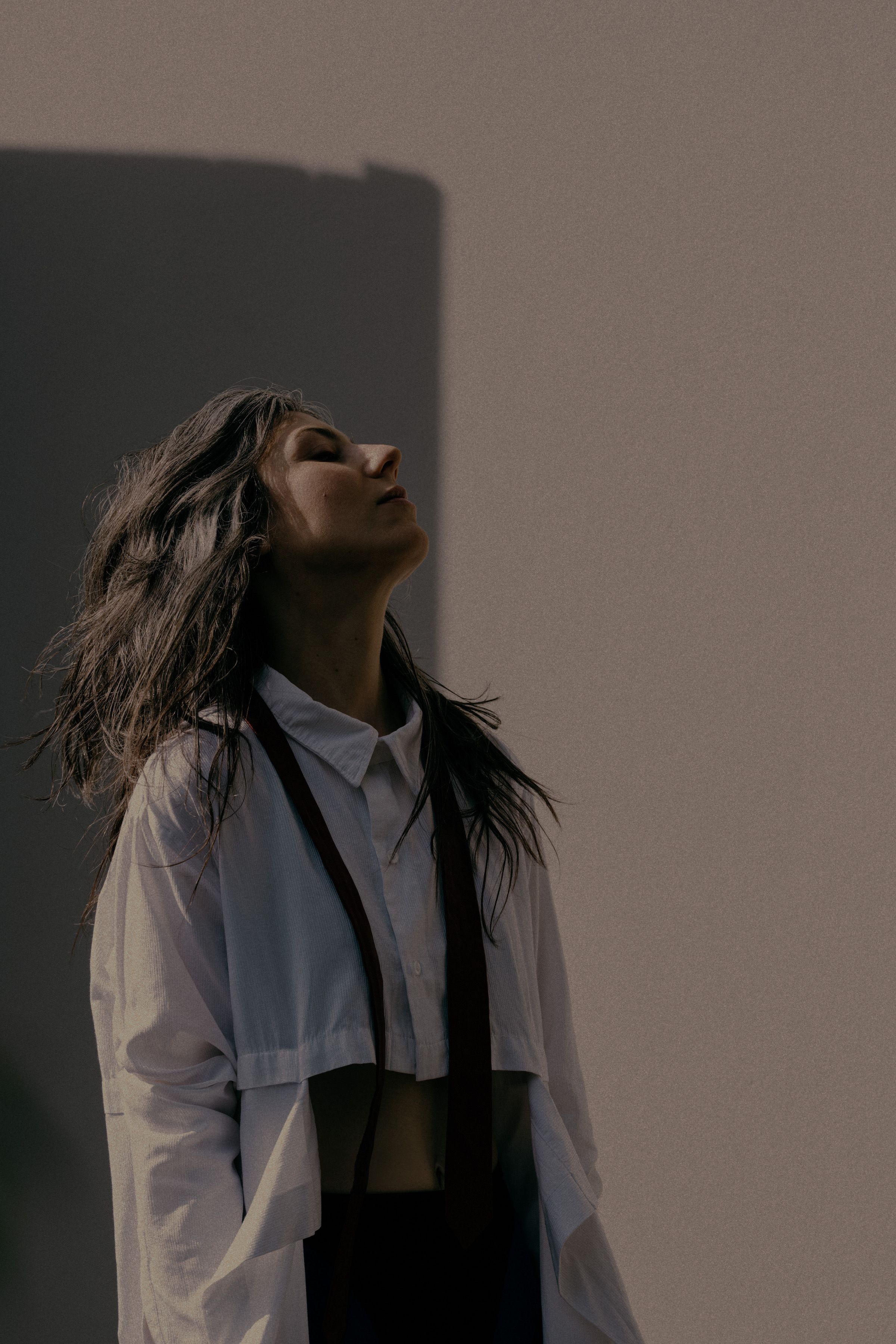Name: Julia Holter
Nationality: American
Occupation: Composer, songwriter, singer, producer
Recent Release: Julia Holter's Something in the Room She Moves is out via Domino.
If you enjoyed this Julia Holter interview and would like to stay up to date with her music, visit her official homepage. She is also on Instagram, Facebook, and Soundcloud.
For an interview with one of her regular collaborators, read our Nite Jewel interview.
How would you describe the process for the new album? Was it very planned and controlled from your end?
I think that the creative process generally works best for me when I don't try to anticipate a lot of what is going to happen. It works best when I just experiment and see where things lead.
So there's not a visualisation of the finished piece when you start working.
It depends on the song actually, every song is different. But a lot of it comes out of an improvisation first, seeing what that reveals and then going from there.
Tell me a bit about the the way Something in the Room She Moves came together.
I think it came together like all my albums have to some degree. Different songs are written and then some of them are recorded in a studio with all of the musicians together. Like on aviary, the song “turn the light on,” we did that one all together as a group.
For Something in the Room She Moves, because of COVID, we did not have a lot of people in the studio at the same time. But we did have the core rhythm section and myself recording together and that was very fun. The same happened for “Evening mood,” “Spinning,” and “Talking to the whisper.”
What about “Sun Girl?” That one sounds really free.
For that one, we improvised over a very rough chart hat I brought - I mean, it was barely a chart at all! The session was very jammy and silly. But then I basically tore it all apart and collaged something together completely different from what we did in the studio. The idea was for the samples to have sort of a rhythmic quality.
So in that case, the process was more like post recording, post studio production.
What was the interaction with the musicians like?
I wanted to have a specific mood for each track, capturing a feeling. So to get that kind of colour required a lot of production - processing the drums a lot, for example.
For “Meyou”, I made a demo. But then, we didn't end up listening to it at all. Everyone just came to the studio, my friends and these great singers. And I just had them sing this melody with me.
So it's just a very basic oral and verbal instruction - you just sing with me. And then we drift apart and then we come back together. So, every song has a different focus and was made a little differently.
“Spinning” is a really interesting song and it's right at the centre of the album. The beginning of that song almost sounds like it's a sample which gets looped. How was that created?
The way that song came about is that I was working with MIDI to write, which I don't do that much. But more recently, with some scoring, I started using MIDI a little bit and I had things set up so that I had MIDI sound on drums and on organ at the same time. I was hitting drums and organ because my keyboard was triggering both drums and organ.
Really funny, so that's how I wrote it: I was just playing this - I guess it's like a fast quarter note - over and over. And it sounded really cool.
The drums on the entire album sound great, they have real depth to them.
The drums are very processed, basically by bringing up the resonance in certain frequencies. These grm plugins were really cool and I used those on the drums throughout the record.
I think that really gave it a lot of the sound - giving it this this psych resonance. You're kind of pulling the noise out of the drums and adding more tone and it becomes almost like a bell. Just slightly, though, and a little distorted.
Can you talk a little bit about how you see the role of the voice in your music? It seems to be pivotal.
It's funny you say that because I'm more and more tired of my voice. I mean, I appreciate my voice, and I don't want it to go away. But one of the things I'm interested in is working with other voices more.
I like change, I like to try new things. And I like the sound of lots of different voices working together and so I haven't thought a lot about my own voice on this record. 
Julia Holter Interview Image by Camille Blake
When you say that you're tired of your own voice, is it about the sound? Or is it the singing itself?
I'm not really tired of my voice, I guess I shouldn't have said it like that. But at the beginning, I actually started writing music as a composer, I started as a performer initially. And sometimes I feel like it's a little limiting to just work with your own voice. I don't always want to be the performer exclusively.
I was recently commissioned by the Opera North in the UK to do a live performance with the chorus to perform music to a screening of the Passion of Joan of Arc, the 1920 Carl Dreyer film. And that was a big project which involved me writing for chorus for the first time.
Besides that choral piece, I've also worked with two friends, Katherine Lamb and Laura Steenberge. We're not trained singers. But we're singing pieces we write for each other. And it's very raw, and very fun. It really made me want to continue working with other voices singing together.
So did you ever consider the possibility of recording an album like Something in the Room She Moves using just external singers?
I actually thought about it initially. Especially for background vocals, I'm kind of like: why not just work with other singers? But a lot of it is practical. Like I often come up with these parts too last minute. And by then, I already brought the singers in, and we can't do another recording session.
But yes, I would like to work more with other voices for sure. I would even do a whole record of just someone else's voice that I'm writing for.
Are there voices that particularly inspire you?
Not really. I like all kinds of voices. (laughs)
I guess one thing I did think a lot about was intonation. I wanted my voice to slide around a lot, I wanted there to be this fluid counterpoint with the bass lines. I was particularly listening a lot to [Lebanese singer] Fairouz.
I don't think there's a direct influence on my album in an obvious way, but I love the frequencies and the timbre of her voice and how it works with instruments and how it works with call and response singers. The mood of her voice is amazing to me. It's breathy and yet she can go quite low as well.
There is a different quality in your voice on this album. How would you explain that?
My voice in some ways seemed very subdued to me, at least compared to my other records. When I was recording vocals, I started to notice that a lot of the songs have kind of quieter vocal parts.
I think that had to do with my life situation. Our child is in school now but didn't used to be, and so my partner and I didn't have a lot of complete privacy. And that's why I think there's a sort of intimate quality to the vocals on this record.
Intimacy is a word I'd associate with your vocal performances in general, though.
Yes, I would say most of my songs are generally kind of in a quieter voice anyway. But on this record especially so!





